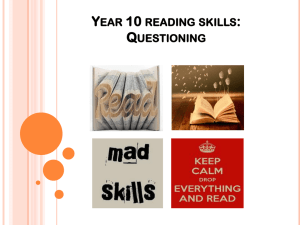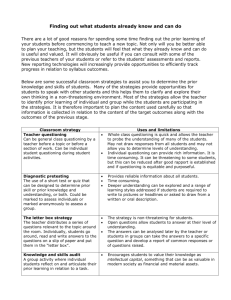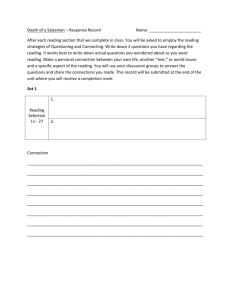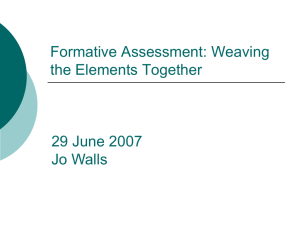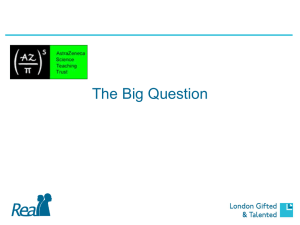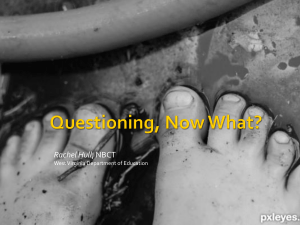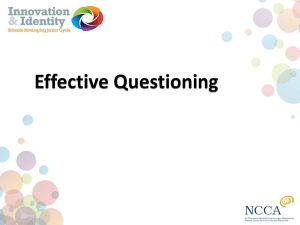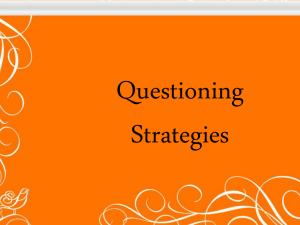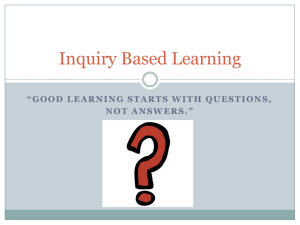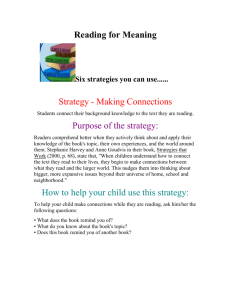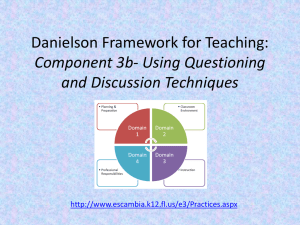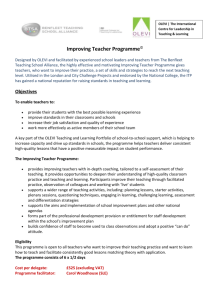Learning Intentions, Success Criteria & Questioning
advertisement
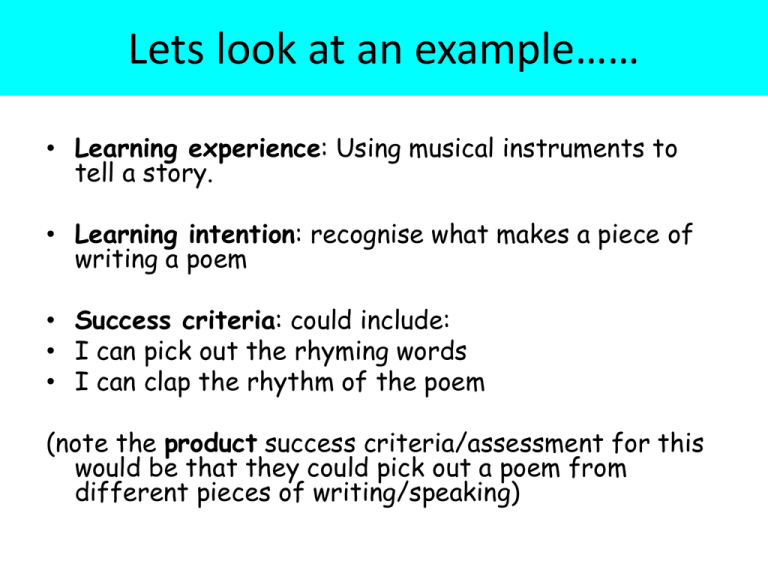
Lets look at an example…… • Learning experience: Using musical instruments to tell a story. • Learning intention: recognise what makes a piece of writing a poem • Success criteria: could include: • I can pick out the rhyming words • I can clap the rhythm of the poem (note the product success criteria/assessment for this would be that they could pick out a poem from different pieces of writing/speaking) Lets look at some examples…… • Learning experience: Sharing Pizza/cake/oranges/slices coloured baubles • Learning intention: Adding fractions with no whole numbers attached • (Process) Success criteria: • Make the bottom numbers in each fraction the same by finding a common multiple Multiply each top number by the same number you have multiplied the bottom number by Add the top numbers If the top number is bigger than the bottom number, then change into whole numbers and fractions • • • • (note the product success criteria /assessment for this would be that the answers are correct) Group Activity • Read the statements on each card. • Discuss each statement asking the following questions: - Which statements are learning intentions? Why? - Which statements are success criteria? Why? - Which statements could be both? Why? • I will learn to be able to use compound appreciation/depreciation to calculate new values • You can say 2 or 3 sentences about subjects you like and dislike • You can use connectives (and, but, also, because) in your anwers. Individual Activity • Choose an experience and outcome that you are working on and plan suitable learning intention, context, and success criteria. Effective Questioning Why do we ask questions? • Discuss with your shoulder partner. What are the challenges of effective questioning? Difficulties with Questioning Creating a climate for quality questioning When no-one answers You may get side-tracked Some people answering all the time Pitching at a level where all understand Research has shown that : • a question is asked every 72 seconds • 38% of the questions are answered by the teachers • Only 8% encourage pupils to talk and think • Follow up questions only 4% of the time • Average wait time is 0.9 secs • Pupils contributions 3 words or fewer 70% of the time
